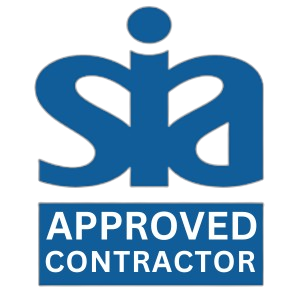Corporate security in London is essential for businesses aiming to protect their assets, employees, and operations. The UK has strict security regulations that influence how corporate security services operate, ensuring a high level of professionalism and safety. Understanding these regulations is crucial for businesses looking to hire security services that comply with UK law and provide effective protection.
Understanding Corporate Security Regulations in the UK
The UK has a well-defined legal framework governing security services, primarily regulated by the Security Industry Authority (SIA). The SIA sets licensing standards and ensures that security professionals meet strict qualifications before being permitted to work in the industry.
Businesses in London must ensure that their security service providers comply with these regulations, as non-compliance can lead to legal consequences and inadequate protection.
Key UK Security Regulations Impacting Corporate Security
1. Security Industry Authority (SIA) Licensing
The SIA oversees licensing for security personnel, ensuring that only trained and vetted professionals operate in the industry. Security guards, door supervisors, and close protection officers must hold valid SIA licences, which require thorough background checks and professional training.
2. Data Protection and GDPR Compliance
Corporate security often involves CCTV surveillance, access control systems, and data handling. Businesses must comply with the General Data Protection Regulation (GDPR) to protect employees’ and customers’ privacy. Security firms handling CCTV footage must ensure proper data storage and access protocols.
3. Health and Safety at Work Act 1974
Under this act, businesses have a duty of care to ensure a safe working environment for employees and visitors. Security measures, such as emergency procedures, fire safety, and risk assessments, play a significant role in compliance.
4. Private Security Industry Act 2001
This legislation governs private security firms and their responsibilities, ensuring professionalism and integrity in the industry. It requires all security personnel working in licensable roles to hold valid SIA licences.
5. Terrorism Act 2000 & Counter-Terrorism Regulations
Businesses in high-risk areas of London, such as financial districts, are required to implement counter-terrorism measures, including security patrols, access control, and threat assessment protocols.
How These Regulations Shape Corporate Security Services
1. Manned Guarding and On-Site Security
Businesses requiring on-site security must ensure that all guards are SIA-licensed and trained in conflict management, first aid, and emergency response. Security personnel must be able to de-escalate situations while ensuring compliance with UK law.
2. CCTV Surveillance and Monitoring
CCTV plays a critical role in corporate security, but it must be implemented within GDPR guidelines. Companies must display proper signage and ensure that recorded footage is stored securely and accessed only by authorised personnel.
3. Access Control and Visitor Management
Corporate buildings in London must enforce strict access control measures to prevent unauthorised entry. SIA-trained security officers manage visitor logs, check identification, and monitor security checkpoints.
4. Emergency Response Planning
Security teams must comply with the Health and Safety at Work Act by implementing effective evacuation plans, fire safety measures, and emergency protocols. Businesses should conduct regular drills to ensure readiness in case of incidents.
5. Cybersecurity and Data Protection
Modern security is not just physical. Cybersecurity plays a crucial role in protecting corporate data from breaches. Security firms must integrate physical security with cybersecurity measures to safeguard sensitive information.
The Role of Professional Security Firms in Compliance
Hiring a professional corporate security company in London ensures that businesses meet all legal security requirements. Reputable firms provide:
✅ Fully licensed SIA-certified security personnel ✅ Compliance with GDPR and data protection laws ✅ Risk assessments and emergency planning ✅ Advanced surveillance and monitoring systems ✅ Trained personnel for crisis management
Tragopan Security, a leading security services provider in London, ensures that all security operations align with UK security regulations, offering businesses peace of mind and a safe working environment.
Choosing the Right Corporate Security Provider
When selecting a security provider, businesses should:
✔ Verify SIA accreditation and compliance ✔ Assess experience in handling corporate security ✔ Check data protection policies ✔ Ensure customisable security solutions ✔ Evaluate the firm’s response time and emergency planning
By prioritising these factors, businesses in London can strengthen their corporate security while adhering to UK laws.
Final Thoughts
Understanding UK security regulations is vital for any business operating in London. Compliance with SIA licensing, GDPR, health and safety laws, and counter-terrorism measures ensures businesses operate within the law while protecting their people and assets.
Tragopan Security offers fully compliant corporate security solutions tailored to business needs. If you’re looking for expert security services in London, contact us today to discuss your requirements.



